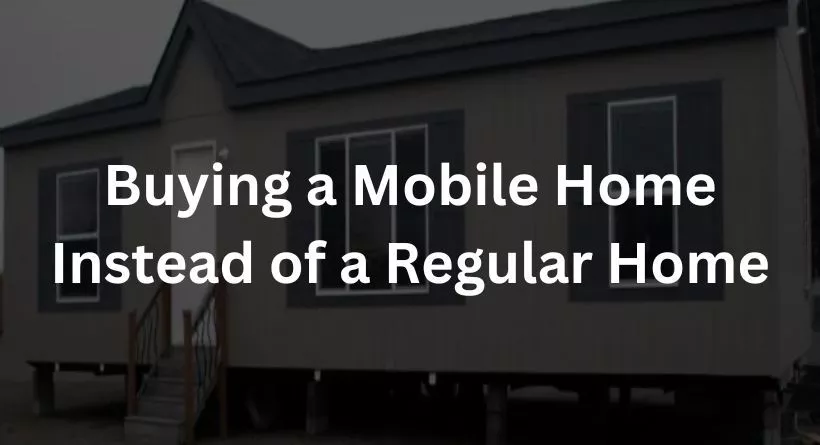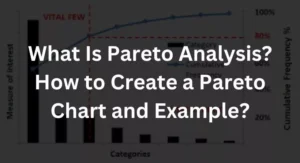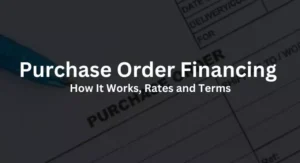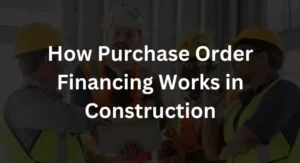
Purchasing a “mobile home” as opposed to a conventional stick-built house has a number of benefits, but there are drawbacks as well. Consider the advantages and disadvantages of purchasing a mobile home to make sure your choice is in line with your financial as well as housing objectives.
Features of the Modern Mobile Home
Mobile houses, commonly referred to as “manufactured homes,” are constructed in factories and mounted on trailer chassis so they can be transported. Sometimes, mobile homes are positioned in a mobile home park or on rented property. In some situations, the owner owns the mobile home but rents or leases the land.
Mobile home owners also have the option of putting their units on property they already own or are under contract to purchase.
Advantages of Buying a Mobile Home
One benefit of mobile homes is that they frequently cost less than having a stick-built home specially designed for you. Mobile houses can facilitate homeownership in this aspect. Additionally, you can obtain more space for your money because mobile homes often cost less per square foot than stick-built houses.
Some stick-built home builders provide pre-set floor plans and customization choices that enable them to build homes at costs comparable to mobile homes. Whether you prefer a stick-built house, you may find out whether one is available in your neighborhood so you can compare the construction’s quality to that of a more recent mobile home.
The flexibility of mobile houses may be another benefit. If you own property, you may put a mobile home on it now and take it off later because they are often less expensive than stick-built homes and only semi-permanent (though removal is more difficult than it seems due to the plumbing and other attachments). This can be a choice if you are unsure of your long-term ownership goals, don’t want to commit to a stick-built home just yet, or can’t currently afford one.
Mobile houses are easier to transport than stick-built homes, despite the fact that they are difficult to move once set up. A stick-built house is essentially permanent once it is constructed.
Mobile houses also have the benefit of often being constructed in controlled surroundings. They can therefore be routinely constructed to a high quality. Additionally, because they are produced under these circumstances, building delays brought on by inclement weather or a lack of subcontractors are less likely.
You may also like reading: How to Set Up a Smart Home
Disadvantages of Buying a Mobile Home
Purchasing a mobile home has the drawback of a rapid value decline. Mobile homes lose value soon after leaving the factory, just like new cars do. On the other hand, because the owner of a stick-built home nearly invariably also owns the underlying land, stick-built homes often increase in value over time.
The value of the land and mobile home as a whole may rise over time for a person who owns both, but it is most likely due to the rising value of the underlying land and not the mobile home.
Mobile houses are considered personal property rather than real estate, which contributes to their value depreciation. Land and everything permanently affixed to it are referred to as “real property”. Real property does not include anything that may be taken away without “injury” to the land. Contrarily, everything that is mobile and isn’t actual property is referred to as personal property.
Mobile houses are considered personal property even if they cannot be readily relocated once they are installed on a piece of land (although in many places the owner of the mobile home and the underlying land can convert the mobile home to real property by following specific actions). Stick-built homes, on the other hand, are regarded as a component of real estate.
Because mobile homes are considered personal property, they often cost more to finance, which is a related drawback. Loans for personal goods, sometimes known as “chattel loans,” typically have higher interest rates and shorter durations than loans for homes.
The fact that mobile homes are frequently found in mobile home parks adds to their drawbacks. Despite technically “owning” your house, you will still have a landlord to whom you must pay rent and who will be held responsible for your adherence to park regulations. In the event that the landlord ultimately decides to evict you, your options will be to move or sell your mobile home.
Particularly in mobile home parks, mobile homes are difficult to resell. Finding a buyer for a mobile home can be difficult because, once they are set up, they are largely immobile unless the buyer wants to keep it there. Moving a mobile home can run into the thousands of dollars.
However, if the mobile home and land are sold together, just like a stick-built house, this might not be a drawback. There is still a stigma associated with owning a mobile home that may deter some buyers, despite significant improvements in the quality of mobile home construction.
The fact that mobile homes are often built on temporary foundations, as opposed to stick-built homes, which are built on permanent foundations, is a final drawback. Mobile houses could be more vulnerable to destruction during a major storm or earthquake.
An excellent, affordable substitute for a stick-built home is a modern mobile home. You should take into account the fact that they have some drawbacks compared to stick-built homes. Research is a must since there are several variables to take into account, including expenses, rules that affect the value of mobile homes, and inexpensive stick-built alternatives.
How Long Do Mobile Homes Last?

Mobile homes constructed now have a life expectancy of 30 to 55 years, according to HUD. By the way, that estimate applies to mobile homes that were constructed in accordance with the most recent HUD construction guidelines and building requirements.8 Therefore, if your mobile home was constructed before 1976, its lifespan may be shorter.
Mobile homes may, of course, survive longer if they are adequately maintained, much like a car. You may live above the 55-year milestone if you maintain regular upkeep, pick your plot site appropriately, and get it examined periodically.
Another factor that might shorten a mobile home’s lifespan is natural catastrophes. Mobile homes are constructed with metal and wood, much like traditional stick-built houses. But unlike typical homes, they aren’t constructed with long-lasting construction on a fixed foundation.
In light of this, those who reside in mobile homes are particularly at risk from natural catastrophes such as hurricanes, tornadoes, flooding, and fires. In fact, according to a recent research, the risk of dying in a tornado is 15 to 20 times higher in a mobile home than in other types of housing.9
It goes without saying that you won’t be passing down a mobile home to future generations of your family.
Should I Invest in a Mobile Home?
You won’t consider a mobile home to be an investment if you’re wise. Purchasing a mobile home is comparable, financially speaking, to purchasing a very large vehicle that you can sleep in. And we are all aware that autos depreciate with time.
Some people like to make the case that purchasing a mobile home is preferable to renting an apartment or house. But let’s examine more closely. All you lose is the $1,200 you pay in rent each month, for example. However, because a mobile house may lose value so fast, purchasing one still results in daily financial loss. Tax-wise, it can appear wonderful, but it’s bad for your home’s market value.
A mobile house is ultimately a risk, and the chances aren’t in your favor. Gambling is only enjoyable if you can afford to lose the wager. You don’t want to involve your entire family in a poor long-term wager.
Good Investing Alternatives to a Mobile Home

Mobile homes are not among the best real estate investment prospects available today, and this is due to one special word: appreciation.
Despite the market’s ups and downs, the majority of homes gain value over time. In reality, property values have been increasing essentially uninterrupted for the past nine years.10 Mobile homes, however, have followed your car’s lead and are depreciating annually.
It is now true that the value of several models of mobile homes has grown. In reality, according to data from the Census Bureau, the average price of a mobile home increased between 2020 and 2021.11 and that’s probably because of the current absurdly high total housing market.
However, the value of mobile homes has historically declined over a lengthy period of time—decades, in this case. When it does, it won’t rise as much as typical residences would. Additionally, the mobile home will continue to lose value when the bubble breaks (as it always does).
Another significant real estate key? Location! Purchase a house in a neighborhood that is growing. By doing so, you’ll be able to purchase a home for less money and weather any market downturns as your property worth increases.
One of your largest investments will be in real estate. It may be quite lucrative, but if you don’t have all the necessary skills in your toolbox, navigating it can be very challenging (and dangerous).
We advise dealing with a real estate expert that excels in their sector because of this. Contact one of our dependable Endorsed Local Providers (ELPs) so they can assist you in finding what you’re searching for.
You’ll get immediate access to the best real estate agent for your family through our ELP program.
Conclusion
In conclusion, exploring the option of buying a mobile home instead of a regular home comes with its own set of pros and cons. Understanding these factors is crucial in making an informed decision that aligns with your lifestyle and financial goals.
Mobile homes offer affordability and flexibility, making homeownership more accessible to a wider range of individuals and families. They often come at a lower price point compared to traditional houses, making them an attractive option for those on a limited budget. Additionally, the ability to move a mobile home to different locations can be advantageous for those who value mobility and flexibility.
On the other hand, it’s important to consider the potential drawbacks of mobile home ownership. Resale value and appreciation potential may be limited compared to traditional homes. Additionally, mobile homes are subject to specific regulations and restrictions, including zoning laws and park rules if located in a mobile home park. Maintenance and repair costs may also vary, requiring diligent research and understanding.
FAQs
Are mobile homes a good investment?
Mobile homes can be a good investment depending on your circumstances and goals. They often come at a lower price point, making homeownership more attainable. However, it’s important to research the market and understand the potential limitations on appreciation and resale value. Additionally, factors such as location and the condition of the mobile home can influence its investment potential.
What are the costs associated with owning a mobile home?
Owning a mobile home involves various costs, including the purchase price, financing costs, insurance premiums, property taxes (if applicable), and ongoing maintenance and repair expenses. Additionally, if the mobile home is located in a mobile home park, there may be monthly lot fees or lease payments. It’s important to budget for these expenses and factor them into your overall financial plan.
Can I finance a mobile home purchase?
Yes, it is possible to finance a mobile home purchase. There are specialized loans available for mobile homes, such as chattel loans or personal property loans. These loans may have different requirements and terms compared to traditional home mortgages. Consulting with lenders who specialize in mobile home financing can provide guidance on the available options.
What should I consider when choosing a mobile home park?
When choosing a mobile home park, consider factors such as location, amenities, park rules and regulations, lot fees, and the overall condition and reputation of the park. It’s important to visit the park in person, talk to current residents, and gather as much information as possible before making a decision.







